Click here to visit and help us create a mind-body support system for cancer survivors!
Click here to see the study proposal.
Mission
To develop evidence-based, safe, and effective golf programs that improve health and wellness among older adults, persons with disability and diseases, and under-represented groups—for example, cancer survivors, veterans, and minorities.
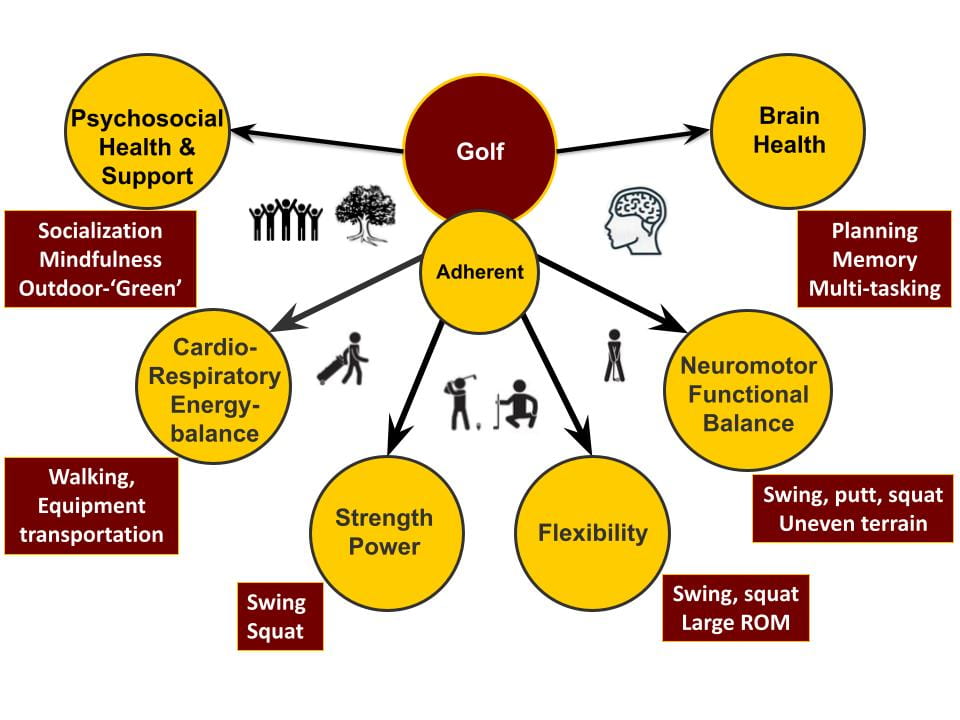
Position Statement
Evidence suggests that golf is a comprehensive, multimodal mind-body activity that improves health and preserves functional independence. Regular participation is likely to enhance cardiovascular fitness, muscular endurance, power production, flexibility, balance, cognitive function, social engagement, and overall quality of life.
Why This Research is Important
Aging, disease, and disability are associated with decreased cardiovascular fitness, flexibility, muscular strength, endurance, power, reaction time, balance, mobility, cognition, and psychosocial well-being. These physiological and psychological changes increase the risk of falls, depression, and anxiety, limit the performance of activities of daily living, and reduce life quality.
Golf is a recreational activity that includes regular walking over uneven terrain interspersed between high-power golf swings, precise putts, and various changes in body position. Studies have demonstrated that these activities are of moderate to high intensity in seniors, and thus promote cardiovascular health. The golf swing is a high-speed yet precise movement that requires a bilateral weight shift, the coordination of multiple muscle groups, rotation of the head and trunk, and control of momentum; whereas the putt requires the golfer to maintain a still position. Thus, golf play challenges both the dynamic and static postural control of the individual.
Lastly, golf play requires considerable planning and strategizing (club choice, swing speed, ball positioning), ball tracking, and is a socially engaging activity; thus, golf play can improve mental capabilities, including inhibition, attention, processing speed, and fluid cognition—all of which decline with advancing age and disability.
Current Studies:
Golf Recreational Exercise for Enhanced Survivorship (GREENS)
The literature has documented the use of multimodal and ‘holistic’/mind-body interventions such as Tai Chi, Qigong, Yoga, & even dragon boat racing to improve cancer-related symptoms (i.e. fatigue, sleep, anxiety, depression, ‘chemo-brain’, loss of physical functions, etc.) and quality of life.
Previous studies (GHA & GIVE, information shown below) conducted by our research team indicated that a 10-12-week golf training program enhanced the following health outcomes in healthy older adults novel to golf:
- Physical – strength, endurance, flexibility, agility, & gait measures
- Cognitive – memory/recall & executive functions
- Inflammatory biomarker – C-reactive protein
Additionally, in the exit survey, participants reported improvements in stress level, happiness, social confidence, & social well-being. All participants indicated that they will continue to participate in golfing activities…
Previous findings suggest that a customized golf program for cancer survivors is likely to enhance health outcomes and overall quality of life.
Click here for more details about the GREENS study proposal
Golf for Healthy Aging Study (GHA)
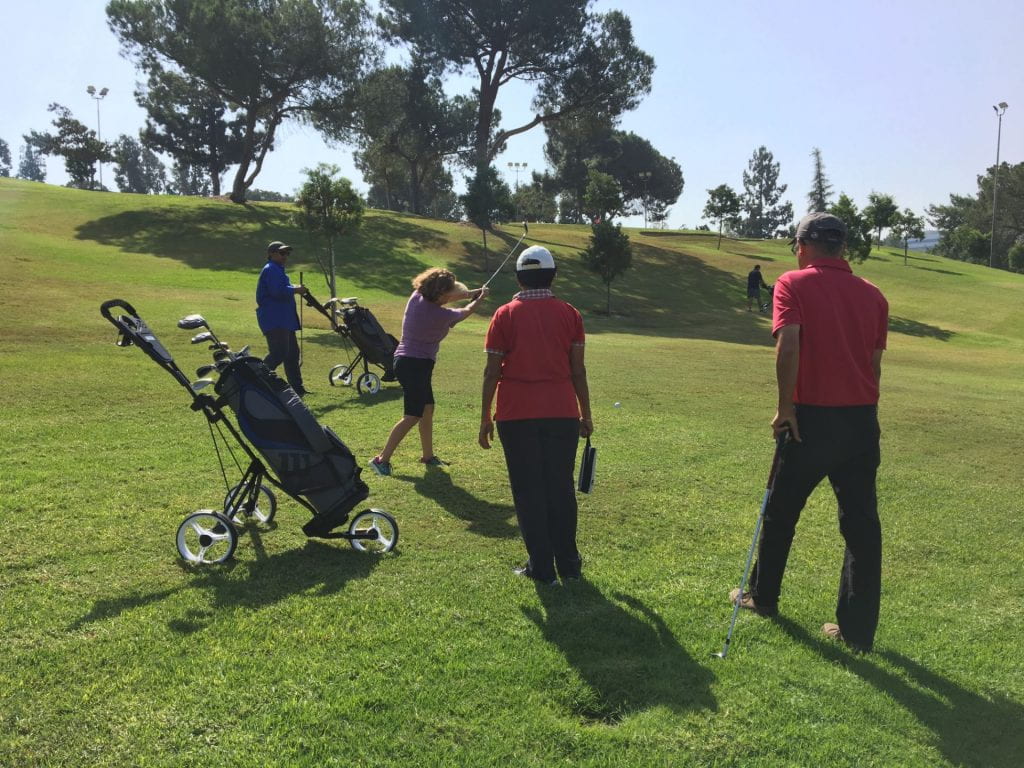



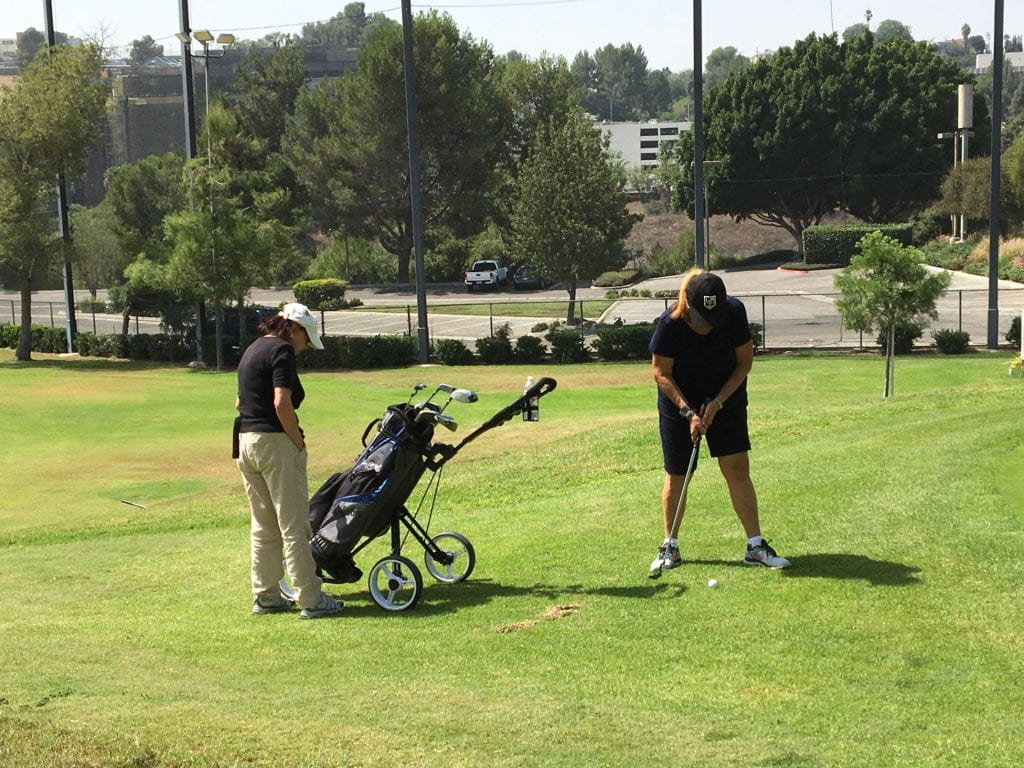

The Golf for Healthy Aging (GHA) study is examining a 10-week golf intervention program designed for ambulatory older-adults (age 60-80). We are collaborating with the Monterey Park Golf Club near downtown Los Angeles, to conduct the investigation and are using a professional PGA golf instructor who regularly trains seniors novel to golf participation. This “first of its kind” study is being funded by the R&A (Royal and Ancient) which is the governing body for golf worldwide.
Primary Study Aims:
1. To enroll a sample of 15 healthy, ambulatory, older-adults (60-80 years of age) whom do not currently golf, into a 10-week senior golf program designed for seniors.
2. To examine the efficacy (change in walking biomechanics, strength, flexibility, functional performance, balance, cognition, & quality of life) of the golf program.
3. To examine the adherence and safety (reported adverse events) of the 10-week program.
Publications:
- Moore, G., Kanwar, K., Du Bois, A., Cai, G., & Salem, G. (2022) The Fitness Effects of a 10-Week Golf Training Program for Older Adults: A Non-Randomized, Pre-Post, Pilot Study. American Journal of Recreation Therapy. Vol 21, No.3. DOI: https://doi.org/10.5055/ajrt.2022.0265
- Kanwar, K. D., Moore, J. L., Hawkes, R., & Salem, G. J. (2021). Golf as a physical activity to improve walking speed and cognition in older adults: A non-randomized, pre-post, pilot study. Mental Health and Physical Activity, 21(May), 100410. https://doi.org/10.1016/j.mhpa.2021.100410
Golf Intervention for Veterans Exercise Study (GIVE)
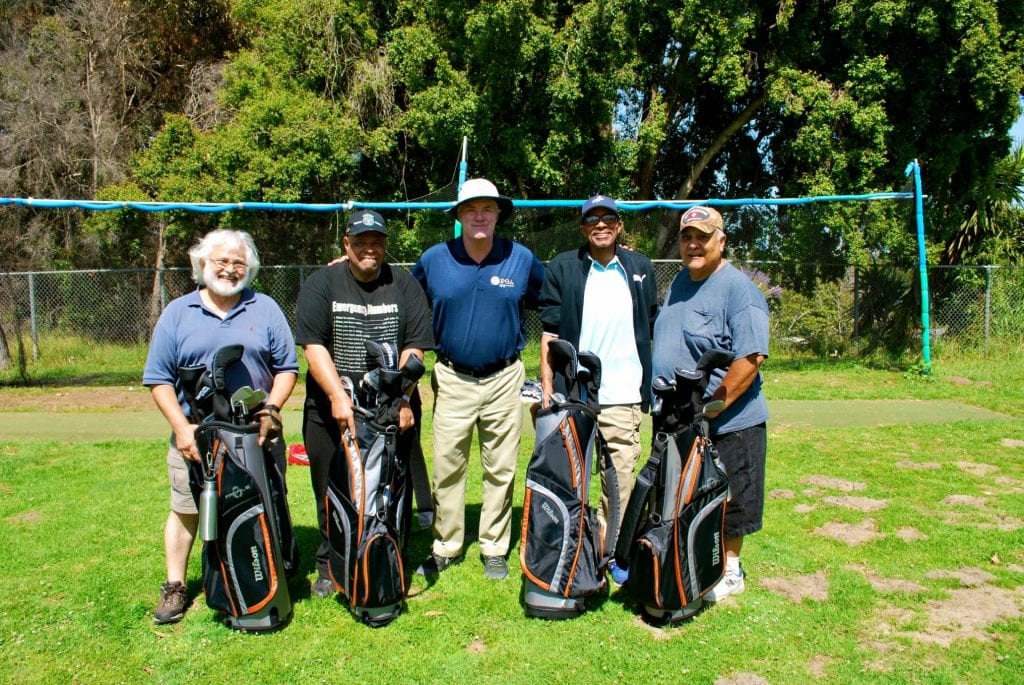
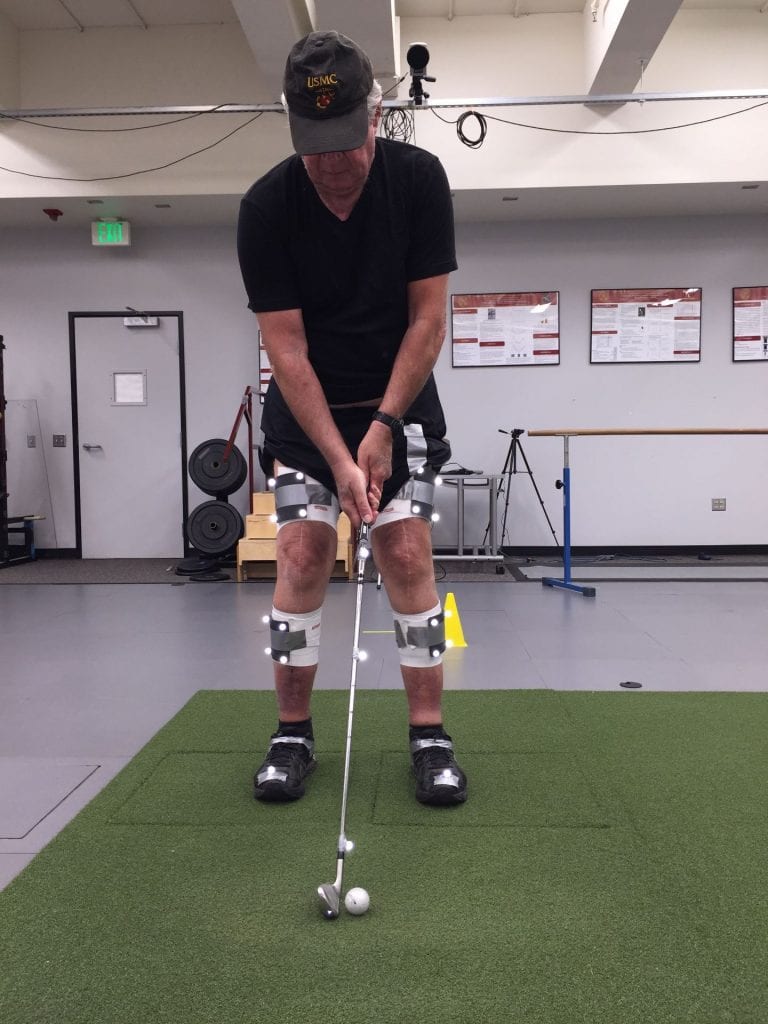
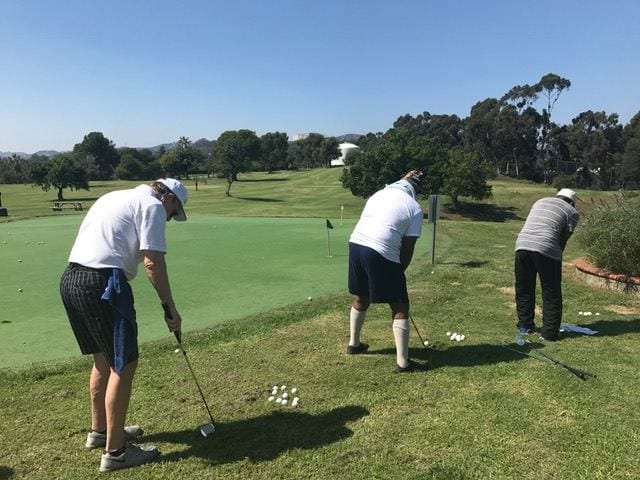
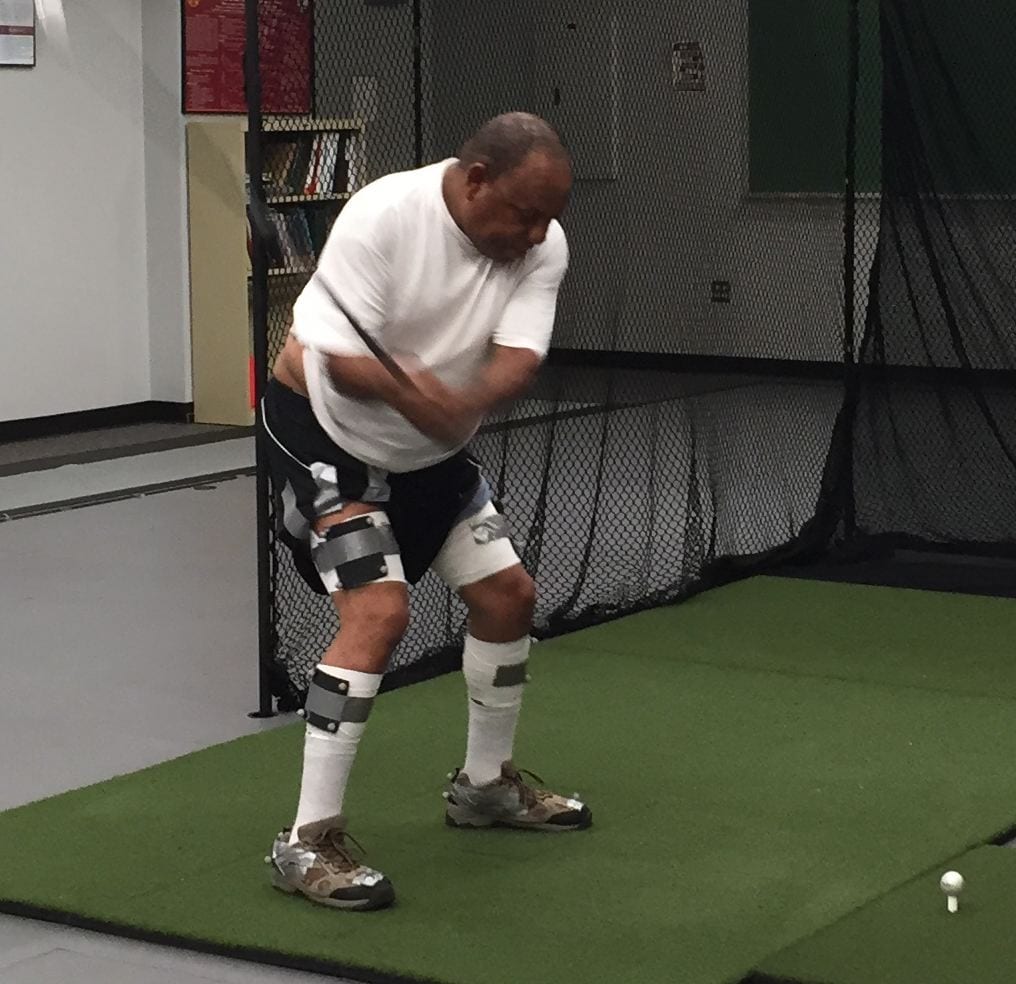

In this study, we are investigating the feasibility, adherence, efficacy, and safety of a 12-week golfing program designed for ambulatory older-adult (age 60-80) Veterans. We are collaborating with the West Los Angeles Veteran’s Administrations’ Heroes Golf Course to conduct the investigation and are using professional golf instructors from the PGA who regularly train Veterans novel to golf participation.
Publications:
- Bois, A. M. Du, Marcione, N. A., Powers, C. M., Flanagan, S. P., Schroeder, E. T., & Castle, S. C. (2021). The Effects of a Comprehensive Golf Training Program on Measures of Physical Performance and Dynamic Balance in Older Military Veterans. International Journal of Golf Science, 9(1), 1–16.
- Du Bois, A. M., Marcione, N. A., Castle, S. C., Moore, J. L., & Salem, G. J. (2019). The Golf Intervention for Veterans Exercise (GIVE) Study: Golf training program and study design – A methodological protocol. International Journal of Golf Science, 7(2), 1–16.

